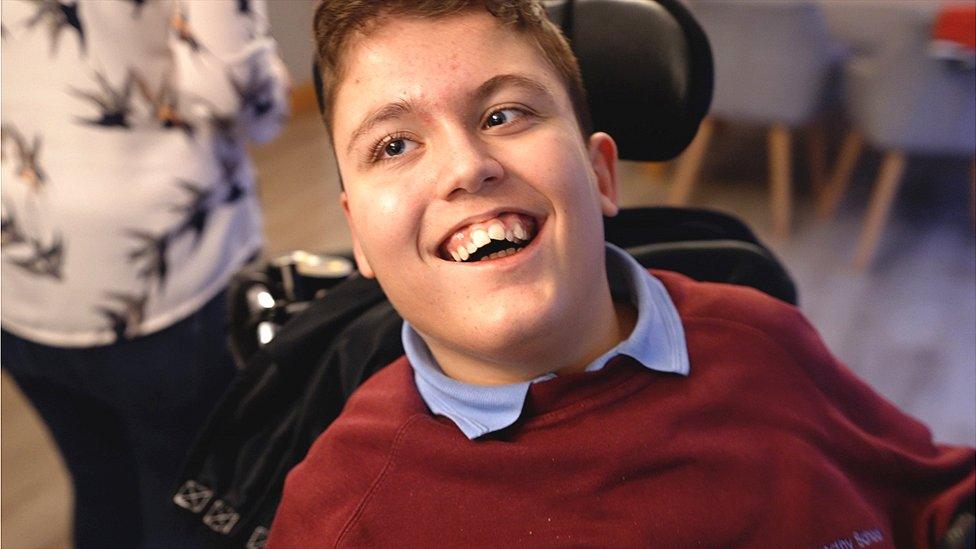'Why won't anyone give my son access to healthcare?'
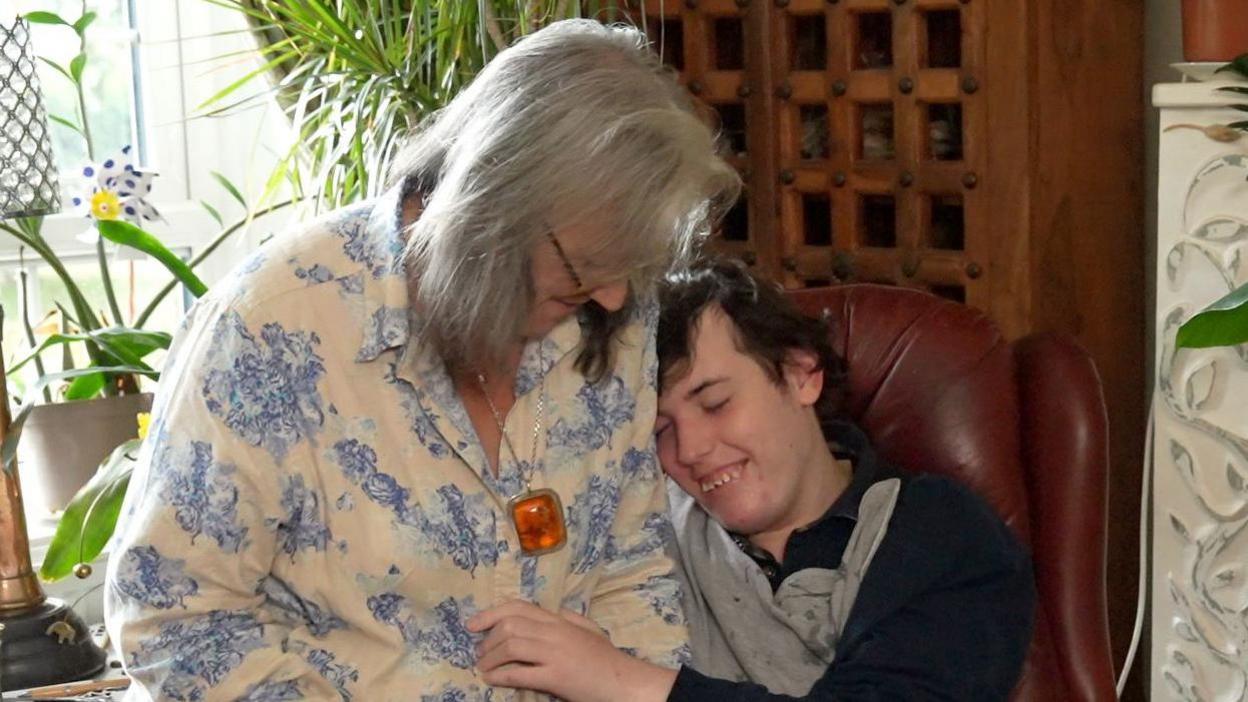
Chantal Chaervey has struggled for years to get her son with cerebral palsy access to healthcare services since he turned 18
- Published
When Chantal Chaervey's son with cerebral palsy lost access to healthcare services at 18, she did not imagine she would be fighting four years on to change this.
As a child, Harry Chaervey, 22, from Brandeston, Suffolk, was diagnosed with epilepsy and cerebral palsy, a condition that affects movement and co-ordination.
Throughout his time at a specialist school, Harry, who is non-verbal, enjoyed access to hydrotherapy — a form of physiotherapy involving exercise in a warm pool that helps with movement.
But when he left school, his mother struggled to get him access through the NHS and believed without it, his life would be limited.
Ms Chaervey, 65, said the past few years had been "hell" and she called for answers.
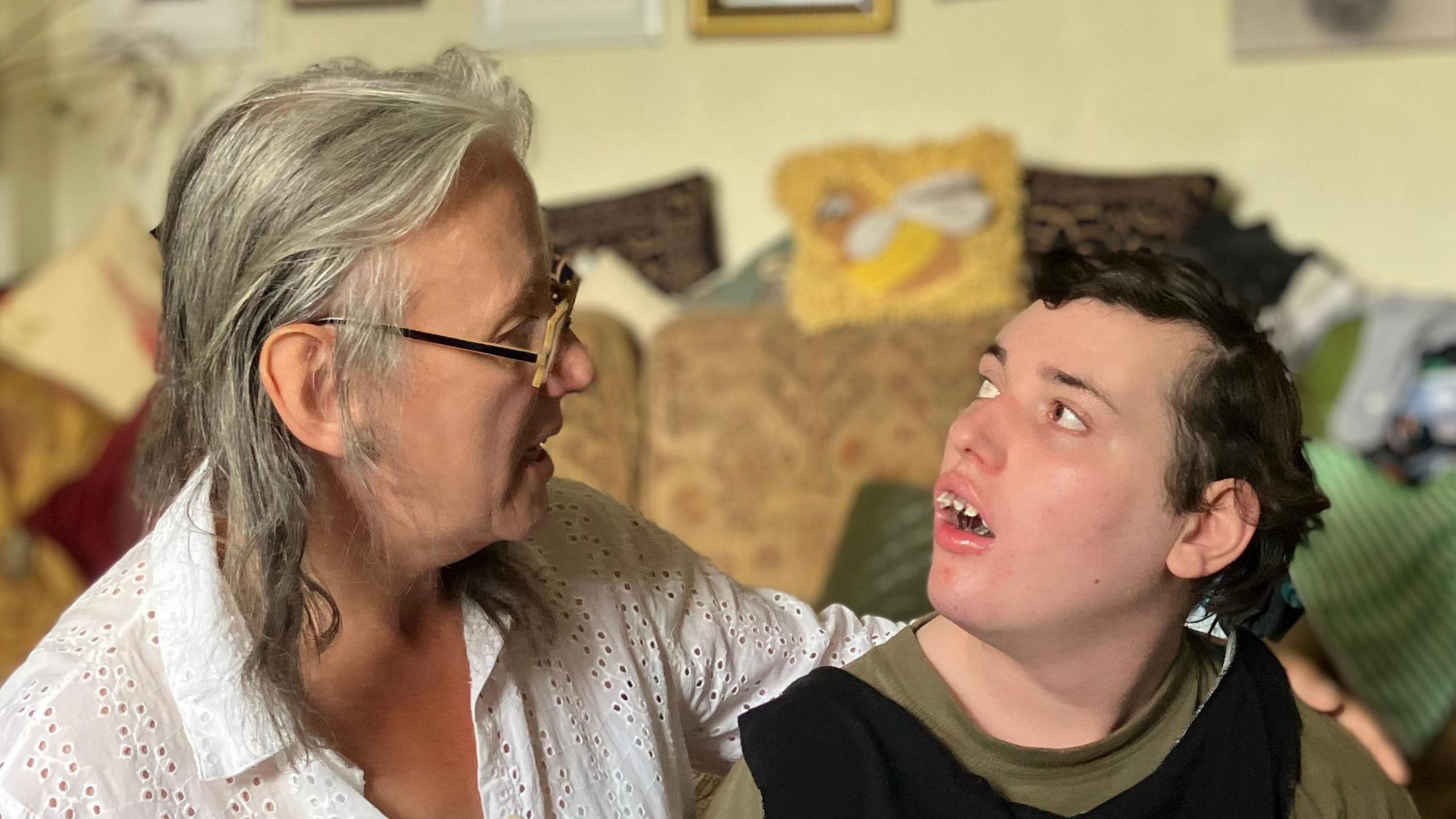
Ms Chaervey said Harry was born with a rare condition that later led to his cerebral palsy and epilepsy diagnosis
Ms Chaervey explained Harry had two liver transplants when he was just 16 and 18 weeks old, but both failed, leading to organ failure and brain damage before he was diagnosed with cerebral palsy.
She said despite that, he had always been "a joy", and as a child, he loved to play football.
"No one could stop him from running," she explained.
"I've got a very vivid image of a teacher trying to control him on sports day, holding him by the seat of his shorts because he just wanted to run.
"He was a joy, and he still is. However all of a sudden things changed."
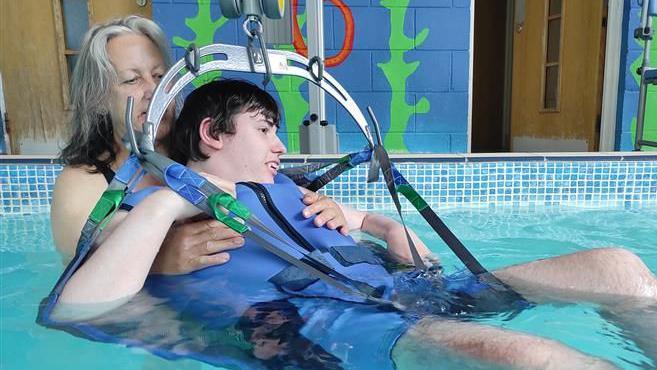
Harry benefited from hydrotherapy at his specialist school and during a previous holiday camp
Ms Chaervey said without the hydrotherapy, Harry had "completely lost the use of his legs", meaning when he wants to move, he either has to shuffle on his knees or he has to use a wheelchair.
She said he was in "constant" pain, his epilepsy had worsened, he was at risk of sudden unexpected death in epilepsy, and he struggled to chew food, sometimes leading to choking.
Ms Chaervey said Harry was also suffering from depression.
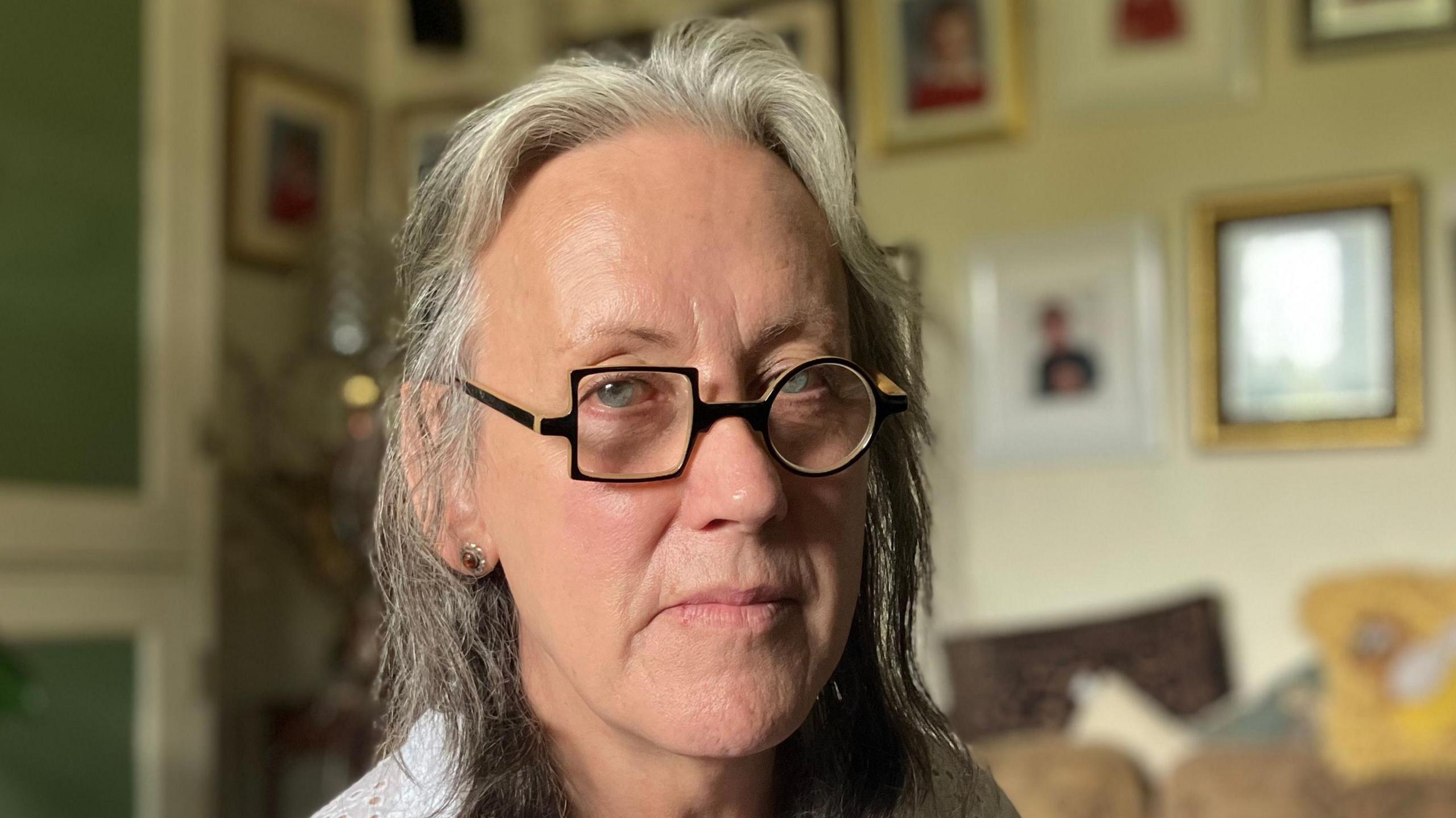
Ms Chaervey said she had hoped to eventually return to her career, but could not see this happening without help to care for her son
Ms Chaervey applied for NHS Continuing Healthcare, external that could have funded Harry's care, but she was told he was not eligible.
She then applied for two exceptional funding requests to get him access to hydrotherapy, but they were similarly denied.
Earlier this year, she applied for a third time and was still waiting to hear back.
It comes despite doctors and physiotherapists recommending Harry for hydrotherapy, with one stating in a letter that it "may well end up being more than any medication change that I can make".
Ms Chaervey said access to hydrotherapy would mean "everything" to Harry, and she believed just half an hour a week could help.
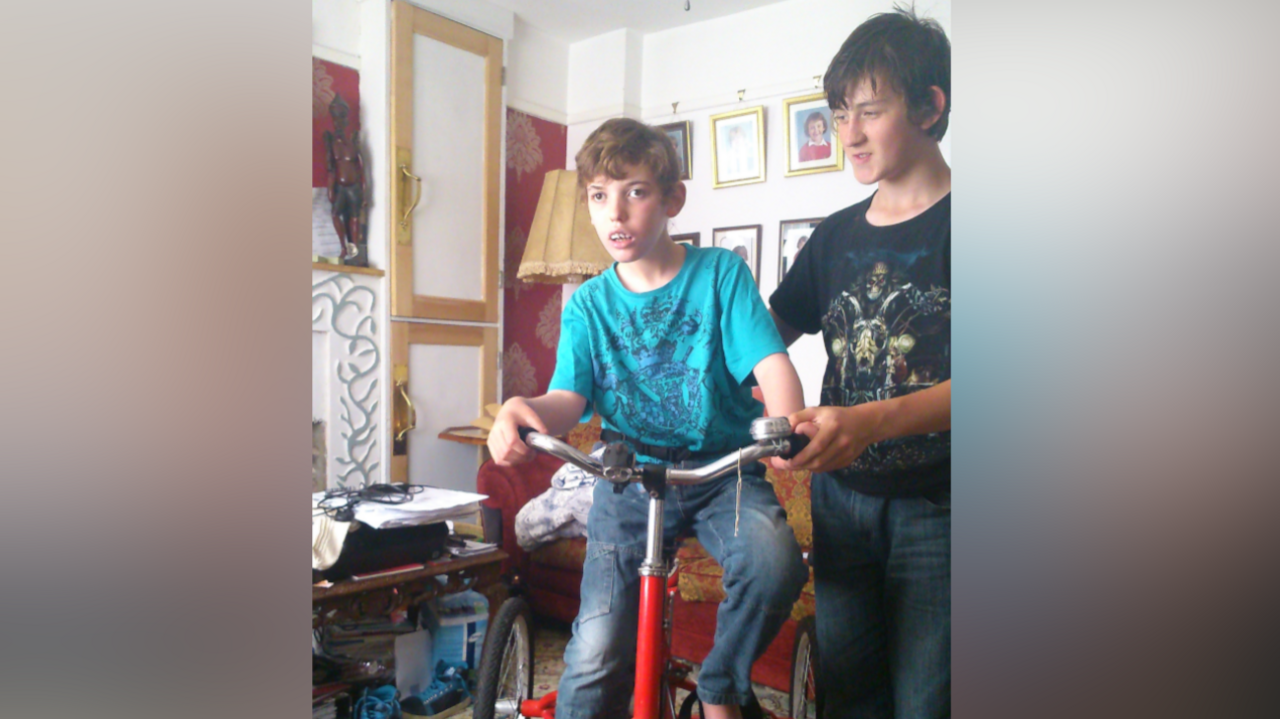
Ms Chaervey said Harry could not stop moving as a child and enjoyed running around
Heather Epps, a physiotherapist with expertise in hydrotherapy for cerebral palsy patients, said it could "improve quality of life" thanks to the benefits it had in pain reduction and its ability to improve muscle function.
"One of the reasons you get pain is because your muscles are pulling against your bones, pulling them into abnormal positions, so your posture isn't great and then because your posture isn't great, it becomes a bit of a vicious cycle," she explained.
"You can't fidget and move, as you or I could, in order to relieve that pressure and reduce that discomfort.
"Whereas once you're in the pool, you can undertake those movements because you've not got that increase in spasticity and stiffness within your muscles that you have when you're out of the water."
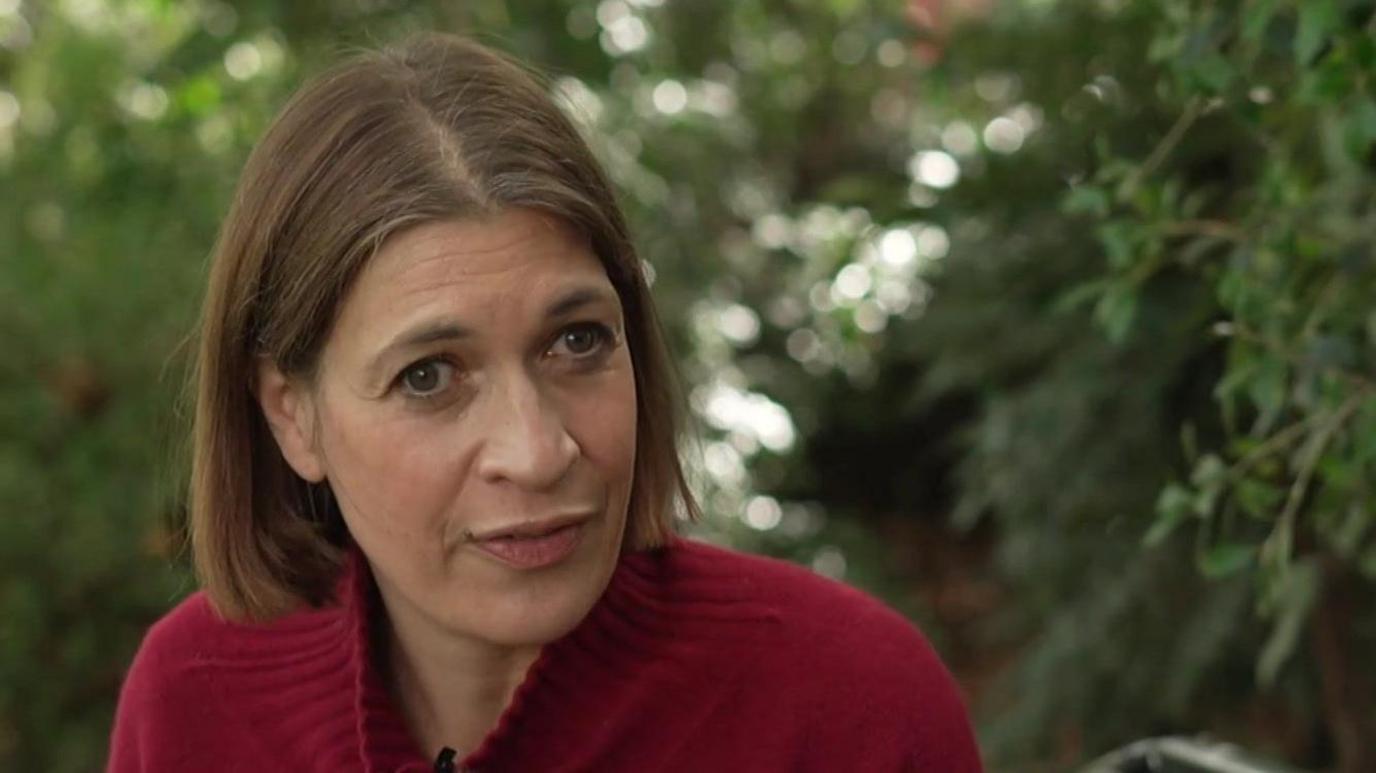
Emma Livingstone formed the charity Up when she found there was a lack of provisions for adults with cerebral palsy
Emma Livingstone is the founder and chief executive officer of charity Up - The Adult Cerebral Palsy Movement.
She said access to healthcare services for adults with cerebral palsy, of which there are about 130,000 in the UK, was a serious issue, and she herself had struggled.
"We are comparably sized to Multiple Sclerosis and Parkinson's, and yet our visibility and the services that we do receive pale in significance," she said.
She said the issue stemmed from the fact that the condition, up until recently, was not recognised as being long-term, as well as the fact that there was "no one professional that coordinates care" for cerebral palsy patients due there being many types of cerebral palsy.
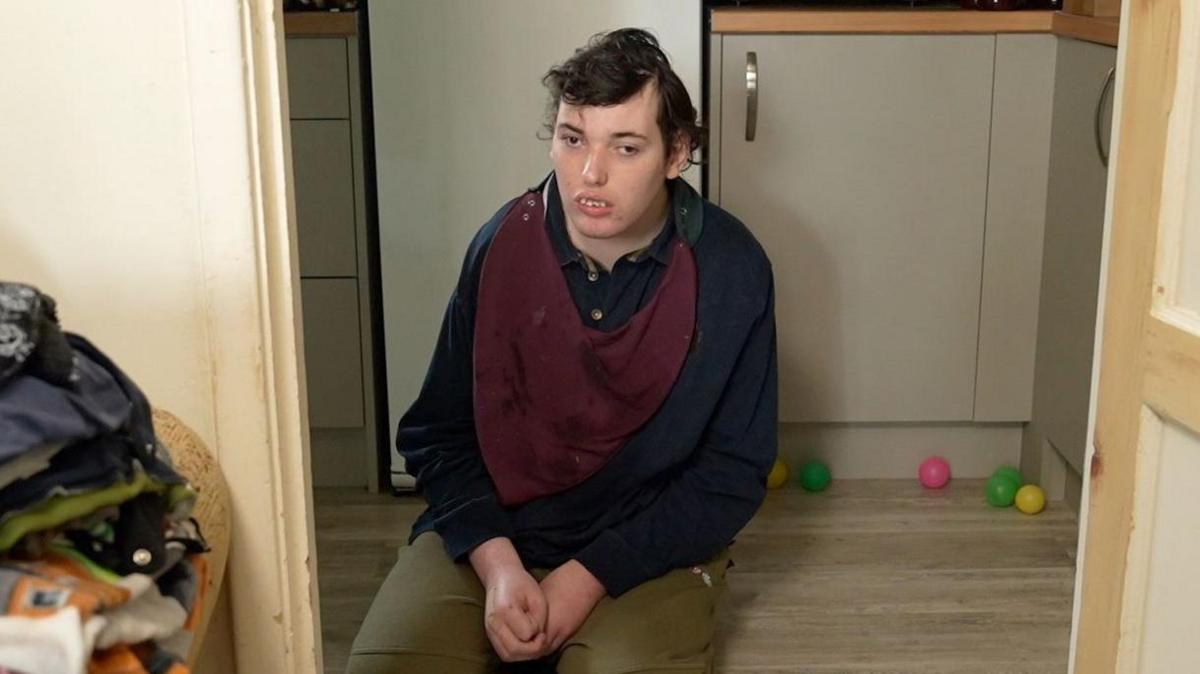
Because Harry cannot walk, he will shuffle on his knees around his home
Ms Chaervey wants answers to why there is no clear NHS framework for adults with cerebral palsy.
"How is it that the care they have needed all their younger lives is not needed as they get older," she questioned.
"Are they suddenly cured, because if they are, please tell me, it would make my life better.
"It is a complete farce. It is time the NHS realised there are cerebral palsy adult patients with very complex situations suffering with chronic pain every hour of every day."
'Happy to talk'
A spokesperson for NHS Suffolk and North East Essex Integrated Care Board said all applications for exceptional funding were considered by a panel of healthcare professionals, "with a focus on the clinical needs of the patient".
"Where an application is not successful, there is an appeals process open to all," they added.
"We'd be very happy to talk directly with the family of the patient to explain the situation."
A spokesperson for the Department of Health and Social Care added it was "committed to ensuring people living with cerebral palsy get the right support throughout their lives".
"We expect NHS England to work with children, young people, families and carers to provide high-quality services, such as hydrotherapy, for people as they transition into adult services," they said.
Get in touch
Do you have a story suggestion for Suffolk?
Follow Suffolk news on BBC Sounds, Facebook, external, Instagram, external and X, external.
Related topics
Stories like this
- Published6 August
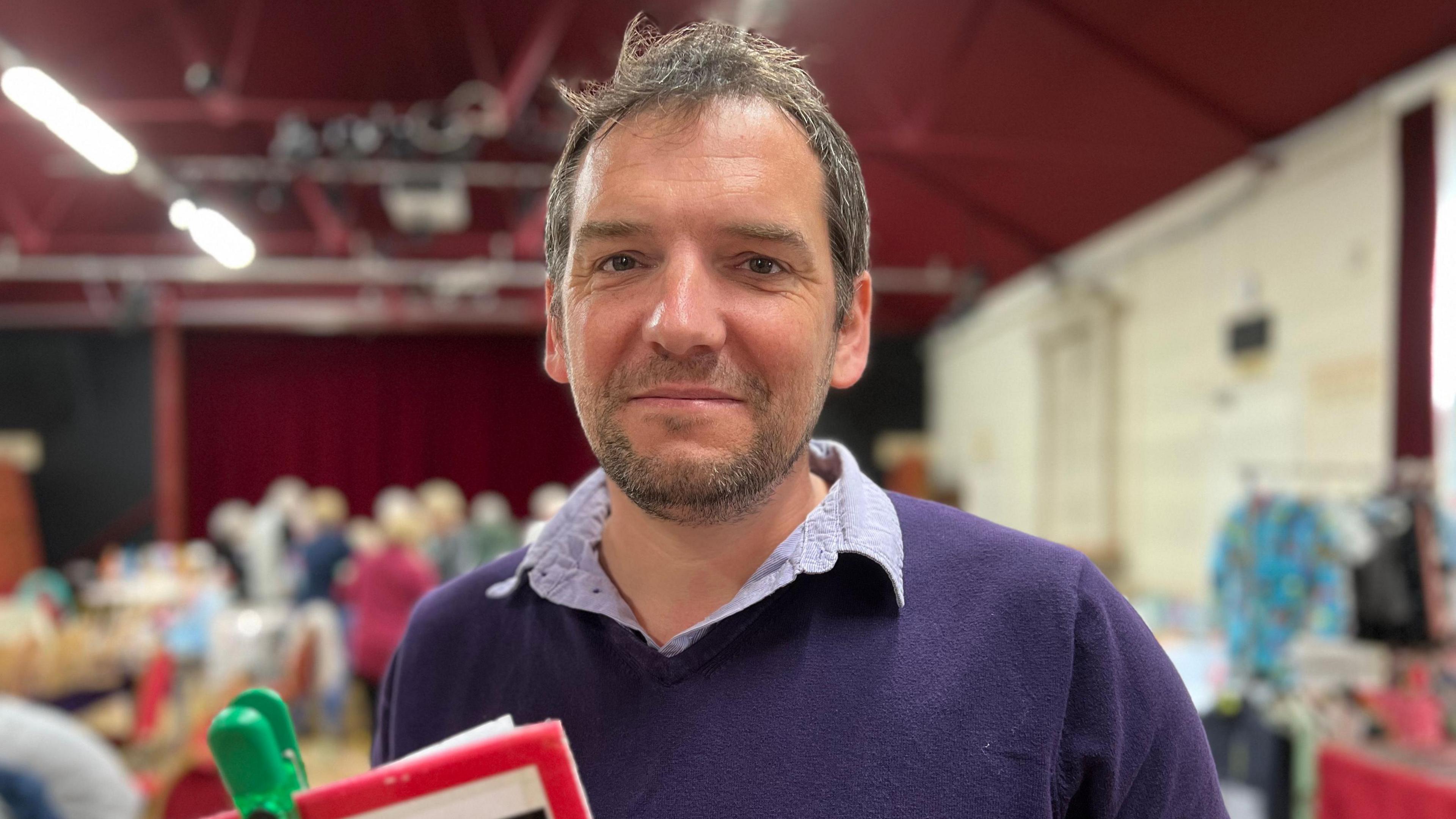
- Published15 October 2024
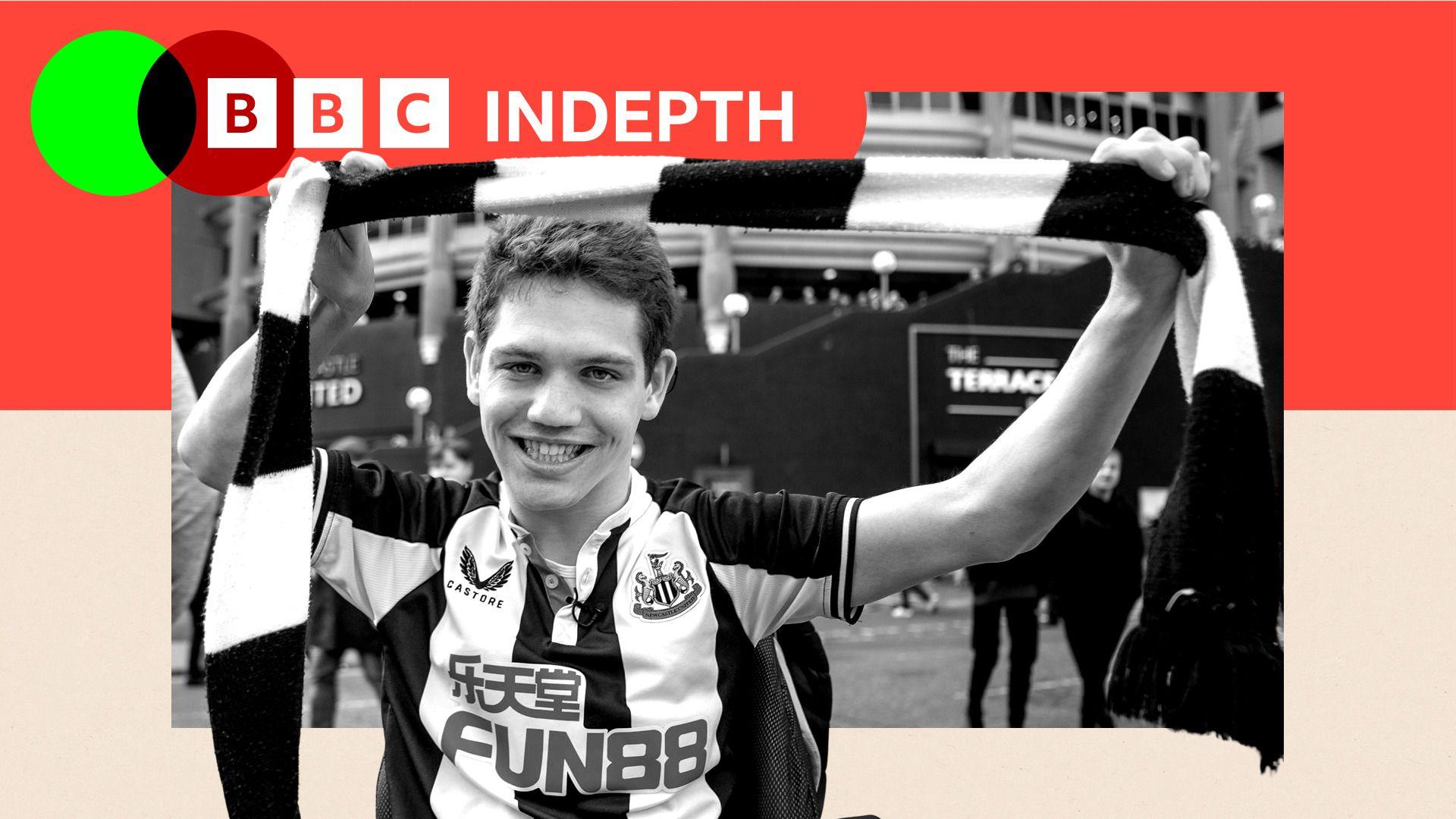
- Published14 February 2024
